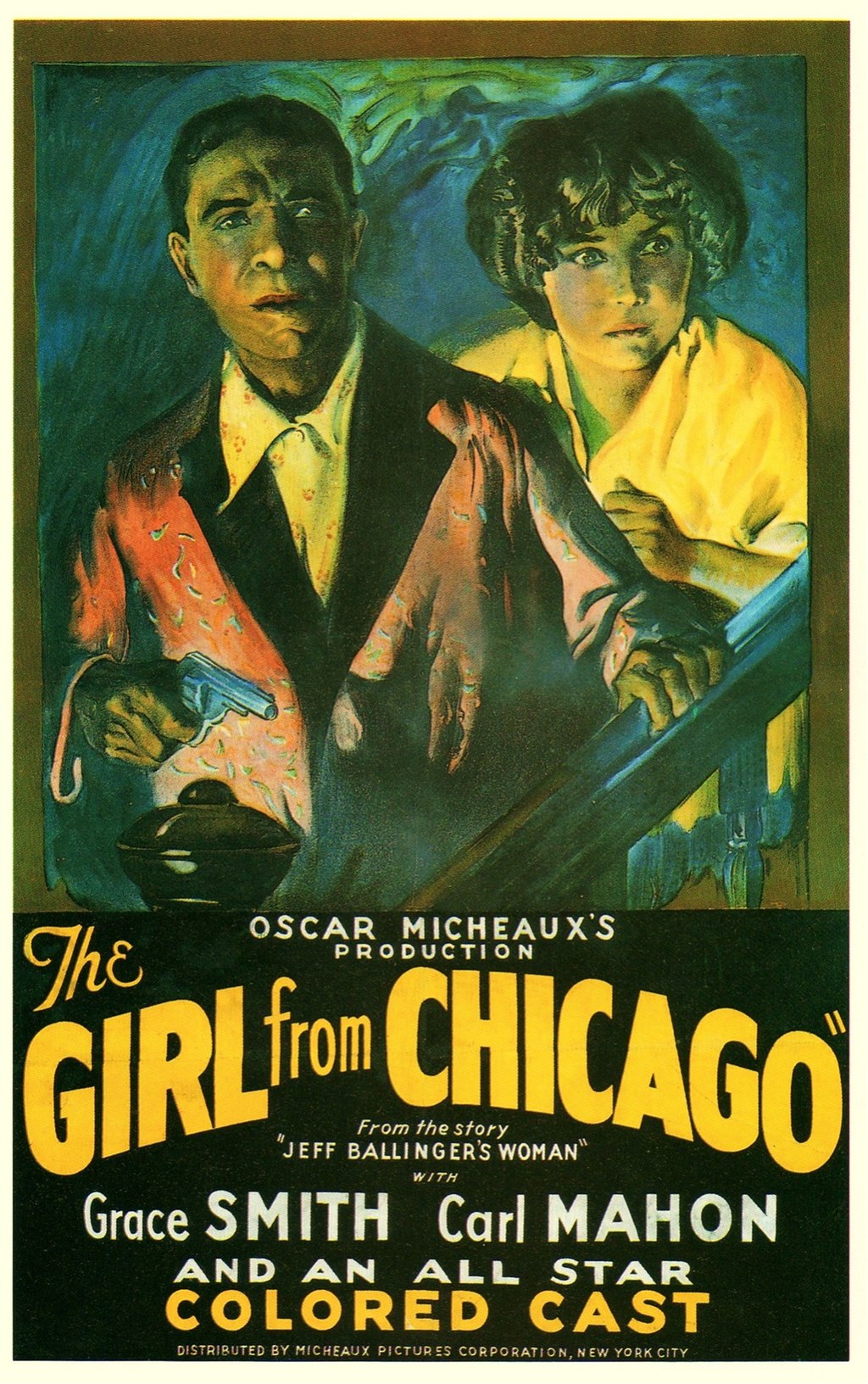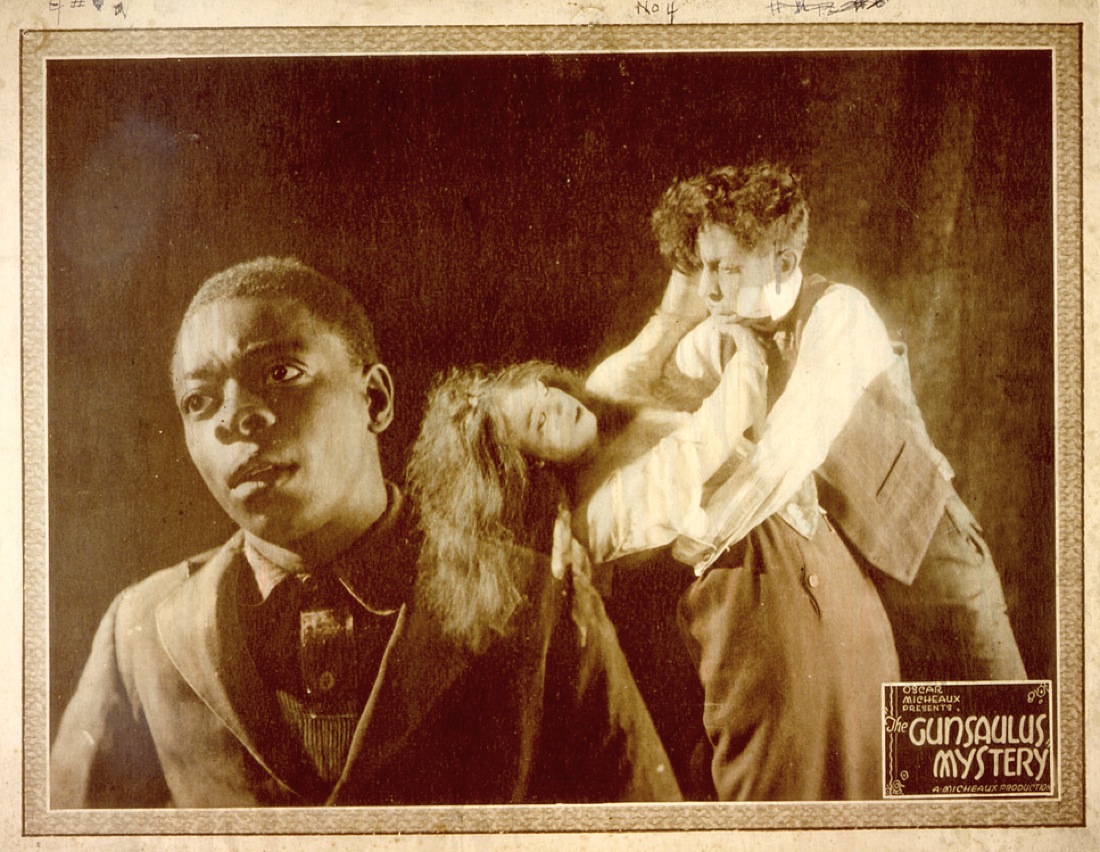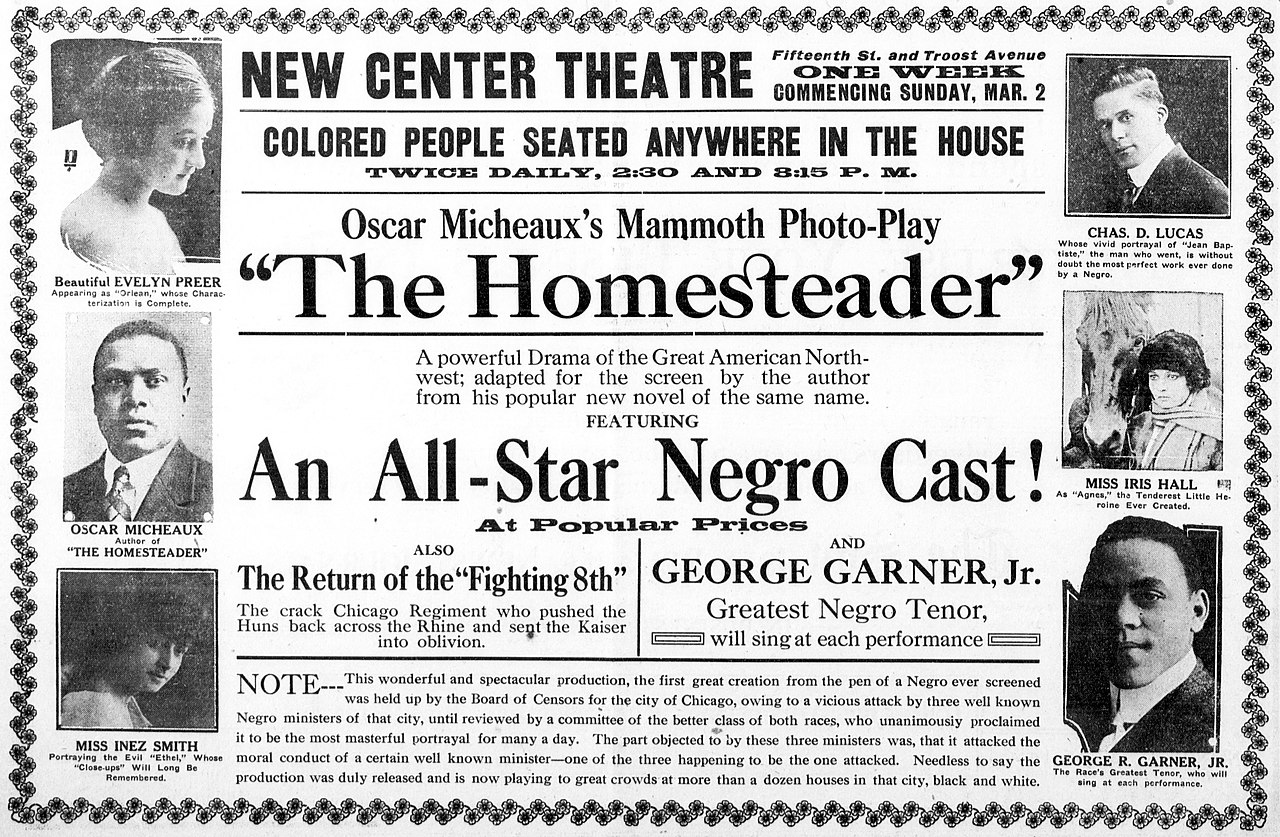MICHEAUX, OSCAR (2 January 1884–25 March 1951), prolific African American independent filmmaker of the early twentieth century, director of the first feature-length film with an all-Black cast and crew.
Micheaux was born in Metropolis, Illinois, to former slaves. He spent his early twenties working odd jobs in Chicago before scoring a position as a Pullman porter. Eventually he earned enough to buy a farmhouse in rural South Dakota, describing himself as the state’s “only colored homesteader.”


Though he was forced to sell the farm in 1911, Micheaux wrote several novels based on his experiences, including The Homesteader, which tells the story of a Black man buying a farm and falling in love with a White woman in a rural White community. Happily the woman of his dreams turns out to be biracial.
Influenced by Booker T. Washington’s up-from-the-bootstraps philosophy of self-reliance and hard work as the means to achieve racial equality, Micheaux, an excellent salesman, sold his novels door-to-door. He had enough success doing so that he was eventually approached for the film rights to The Homesteader. When the producers wouldn’t let Micheaux direct, he decided to make the film himself.
The Homesteader was a resounding success, despite its controversial subject matter. Micheaux immediately threw himself into the movie business. Over the next thirty years, he would write, produce, and direct over forty films, including both silent and sound films. He would also distribute and promote his own works, embarking on multiple nationwide tours of Black neighborhoods.
His films, made on a shoestring budget, were never technically sophisticated, but they were revolutionary in their depictions of contemporary Black life. They featured predominantly Black casts and made stars of several Black actors, including Evelyn Preer. He strove to present complex, mostly middle-class Black characters that were neither idealized nor stereotyped. Unlike other “race films” of the era, which steered clear of politics, Micheaux’s work bluntly depicted racial injustice, including lynching. His film Within Our Gates was made as a direct rebuttal to D. W. Griffith’s racist The Birth of a Nation.
He also dealt with controversial topics within the African American community, such as interracial relationships and “passing,” and was criticized by his contemporaries for repeated depictions of corrupt Black preachers.

In 1928 Micheaux was forced to declare bankruptcy. He made several more films, financed by an outside investor, but was nowhere near as prolific as he had been early in his career. Though he returned to selling his own novels, he was able to raise money for one last film in 1948, a three-hour autobiographical epic called The Betrayal. The film was a commercial and critical flop, leaving Micheaux financially and emotionally devastated. He died of heart failure three years later at age sixty-seven.
Because Micheaux was forced to produce his films outside the studio system, his work was not well preserved. Only fifteen of his more than forty films have survived, and all are damaged or incomplete prints. It is only recently that film historians have begun restoring Micheaux’s work and reevaluating his legacy.